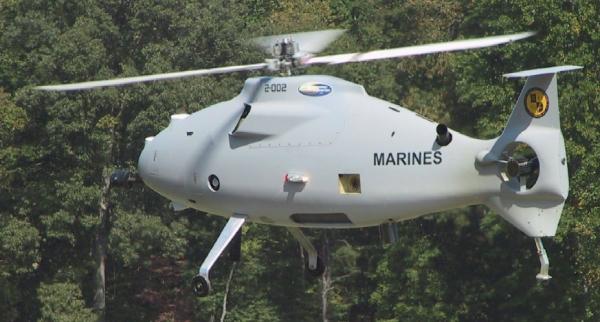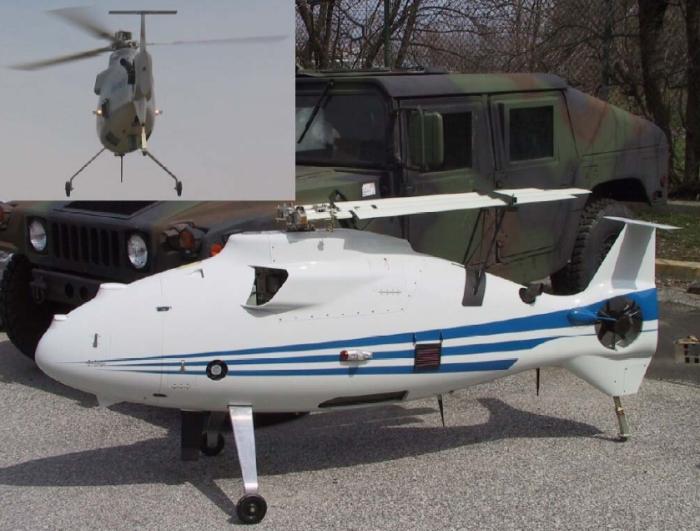Naval Research Lab Vantage (Dragon Warrior) (original) (raw)
The Vantage UAV was developed by the Naval Research Laboratory and the Marine Corps Warfighting Laboratory (MCWL) in the 2002/2004 time frame to fulfill the Marine Corps' "Dragon Warrior" requirement. The UAV itself was originally also referred to as Dragon Warrior, and the name was possibly changed to avoid confusion with other UAV designs for the same requirement (e.g. the Sikorsky Cypher II). "Dragon Warrior" called for an HMMWV-transportable VTOL vehicle for RSTA (Reconnaissance, Surveillance & Target Acquisition) and communications relay missions. Flight tests of the first full-scale NRL prototype began in June 2003.
 |
|---|
| Photo: NRL |
| Vantage (Dragon Warrior) |
A heavy-fuel Wankel engine powers the Vantage UAV's main rotor, while the tail rotor is driven electrically. The UAV uses differential GPS navigation for fully autonomous operations of 3-5 hours duration. Payload capacity is about 11-16 kg (25-35 lb).
 |
|---|
| Photos: NRL |
| Vantage |
The USMC has since cancelled the Dragon Warrior program because of development problems with the UAV. It is unclear if the NRL's Vantage UAV will be used for further work related to payload and/or vehicle development.
Specifications
Note: Data given by several sources show slight variations. Figures given below may therefore be inaccurate!
Data for Vantage:
| Length | 2.13 m (84 in) |
|---|---|
| Rotor diameter | 2.44 m (96 in) |
| Weight | 160 kg (350 lb) |
| Speed | 185 km/h (115 mph) |
| Ceiling | 5500 m (18000 ft) |
| Endurance | 3-5 h |
| Propulsion | Heavy-fuel Wankel engine; 31 kW (42 hp) |
Main Sources
[1] NRL UAV Fact Sheets
[2] GlobalSecurity.org Website
Back to Directory of U.S. Military Rockets and Missiles, Appendix 4
Last Updated: 7 February 2006